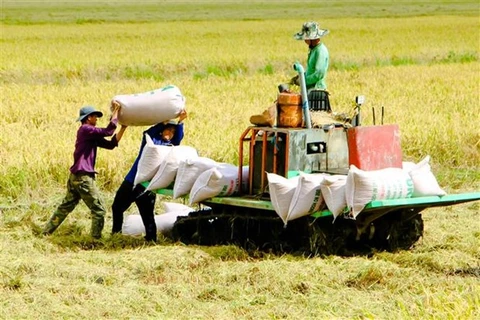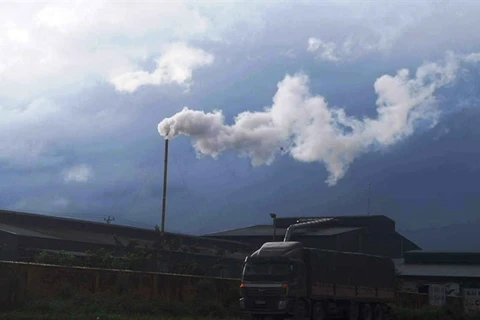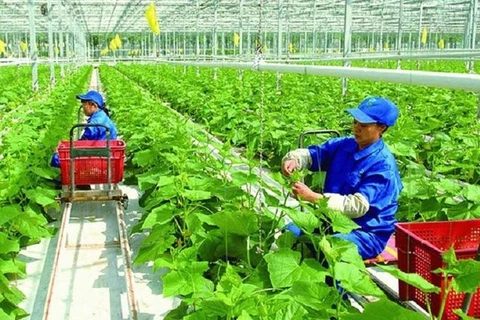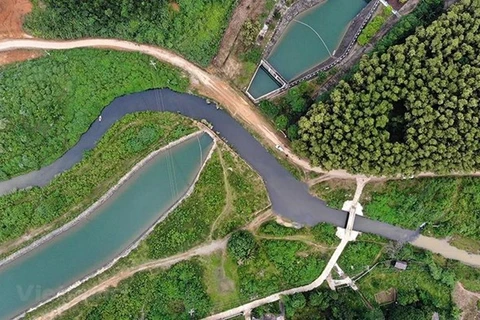Hanoi (VNA) – Vietnam always considers its response to climate change a vital issue, and reducing greenhouse gas (GHG) emissions a priority of the entire political system, an official has said.
Tang The Cuong, Director of the Department of Climate Change (DCC) under the Ministry of Natural Resources and Environment, made the statement at a workshop held in Hanoi on October 11, aiming to share experience in developing a system of exchange of GHG emission quotas and carbon credits in Vietnam.
Cuong said the mission is reflected in the National Strategy on Climate Change until 2050, part of Vietnam's updated Nationally Determined Contribution sent to the Secretariat of the United Nations Framework Convention on Climate Change.
The event, which was co-organised by the DCC and Korea International Cooperation Agency (KOICA) Vietnam, was part of the Cooperation Framework Agreement on Climate Change between the two governments as well as celebrate the 30th anniversary of the establishment of diplomatic relations between Vietnam and the Republic of Korea (RoK).
Vietnam has experience in exchanging carbon credits such as the clean development mechanism under the Kyoto Protocol and other bilateral and voluntary initiatives. However, professional knowledge of the carbon market among officials remains limited, he said.
That’s why it is necessary to promote training and communication to develop the carbon market in Vietnam, Cuong added.
Cho Han-deok, Country Director of KOICA in Vietnam, emphasised that the RoK and Vietnam are important partners, so KOICA wants to continue supporting Vietnam's efforts to respond to climate change.
He appreciated Vietnam's declaration of a net zero emissions target, adding that KOICA is interested in supporting the country in areas related to carbon emission reduction and quota exchange, adding that the agency intends to make plans for official development assistance (ODA) projects.
The RoK has a lot of experience in carbon market organisation and development. It is also one of the few countries to have established and operated an exchange system of greenhouse gas emission quotas and carbon credits. The implementation of the carbon credit system has helped the RoK control 73% of national GHG emissions./.

Low-carbon rice production helps Vietnam meet emission target
Moving to low-carbon rice production offers the highest potential for Vietnam to meet its goal of cutting methane emissions by 30% by 2030 while boosting the competitiveness of a strategic export item, a new World Bank report says.























